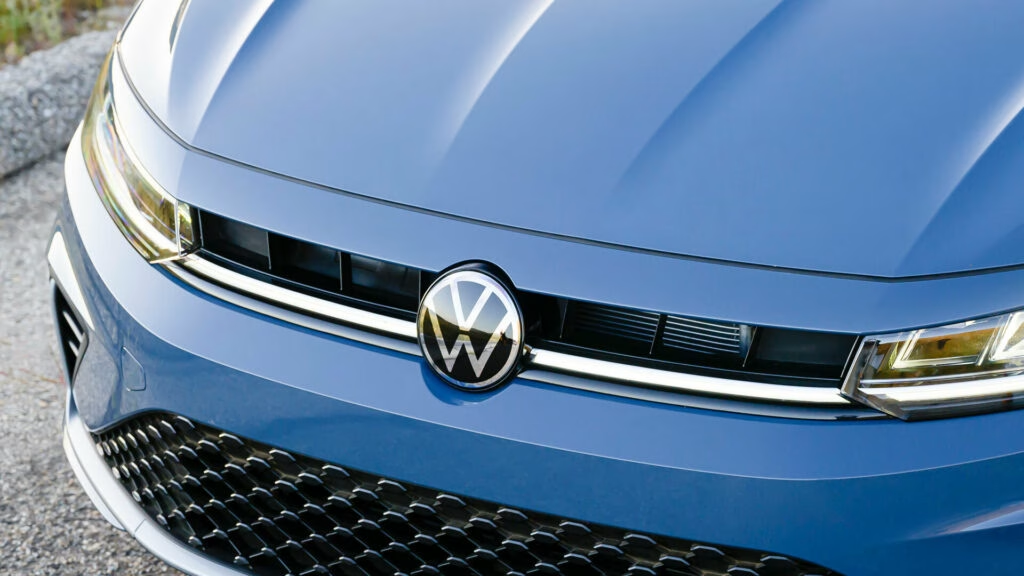How Have US Tariffs Impacted Volkswagen’s Bottom Line?
Volkswagen’s latest quarterly numbers tell a story that’s hard to ignore. The company took a $1.5 billion hit directly from US tariffs—more than what General Motors lost in the same period. That’s not just a rounding error; it’s a gut punch to the balance sheet. Despite delivering over 2.27 million vehicles worldwide and pulling in $94.8 billion in revenue, Volkswagen saw a 3% drop in revenue compared to last year. Even more telling, earnings before tax plummeted nearly 33%, and after-tax profits fell by more than a third.
It’s not just tariffs, either. Volkswagen’s financials have been squeezed by restructuring costs at Audi, Cariad, and its core passenger car division, as well as expenses tied to stricter CO2 regulations and currency fluctuations. But make no mistake: the tariffs are the headline act here. According to the company, the current 27.5% US import tariff is expected to stick around for the rest of 2025, with only a faint hope that it might eventually drop to 10%. That’s a long time to be bleeding cash.
Why Are Deliveries Up but Profits Down?
Here’s the head-scratcher: Volkswagen actually delivered more cars this quarter, but made less money. How does that add up? The answer lies in the mix of what they’re selling and where. Growth in Europe and South America helped offset declines in China and North America, but those gains weren’t enough to counteract the financial drag from tariffs and regulatory costs.
On top of that, Volkswagen is investing heavily in electric vehicles—a move that’s crucial for the future but expensive in the short term. The company pointed to strong demand for models like the Audi Q6 e-tron and VW ID.7 Tourer, but these vehicles often come with slimmer margins as the company ramps up production and navigates supply chain headaches. The result? More cars out the door, but less profit per vehicle.
What’s Behind Volkswagen’s Lowered Forecast for 2025?
Volkswagen isn’t sugarcoating the outlook. The company has revised its operating return on sales forecast downward, now expecting 4-5% instead of the previous 5.5-6.5%. Automotive net cash flow estimates have also been slashed, from a range of $2.3-5.9 billion to just $1.2-3.5 billion. That’s a sobering adjustment.
Several factors are at play. The ongoing tariff situation is the big one, but there’s also the cost of restructuring and a $1 billion investment in Rivian, the US-based electric vehicle startup. These bets might pay off in the long run, but for now, they’re a drain on cash flow. Add in the unpredictable nature of global markets—think currency swings and shifting consumer demand—and it’s clear why Volkswagen is bracing for a tougher year.
How Is Volkswagen Responding to These Challenges?
Volkswagen isn’t just sitting back and taking the hits. The company is actively restructuring its operations, especially at Audi and Cariad, to become leaner and more competitive. It’s also doubling down on electrification, aiming to capture a bigger slice of the growing EV market. Orders for new electric and hybrid models are strong, suggesting that the strategy is resonating with customers.
At the same time, Volkswagen is lobbying for a reduction in US tariffs, hoping for a breakthrough that would bring them down to a more manageable 10%. While there’s no guarantee of relief in the near term, the company is positioning itself to weather the storm—investing in future technologies while tightening its belt where it can.
What Does This Mean for Car Buyers and the Industry?
If you’re in the market for a new Volkswagen—or any imported car, really—these tariffs have a direct impact on sticker prices. Automakers often pass at least some of the extra cost onto consumers. So, don’t be surprised if you see higher prices on dealer lots, especially for models shipped in from overseas.
On a broader scale, Volkswagen’s struggles highlight just how interconnected the global auto industry has become. Tariffs, regulatory changes, and shifting consumer preferences can ripple across continents in a matter of months. For industry watchers, the takeaway is clear: agility and adaptability are more important than ever.
A Smarter Path Forward
The big takeaway? Navigating today’s auto market isn’t about perfection—it’s about smarter adjustments. Volkswagen’s experience shows that even industry giants have to pivot quickly when the rules change. Start with one change this week, whether it’s rethinking your supply chain or focusing on high-demand models, and you’ll likely spot the difference by month’s end.

